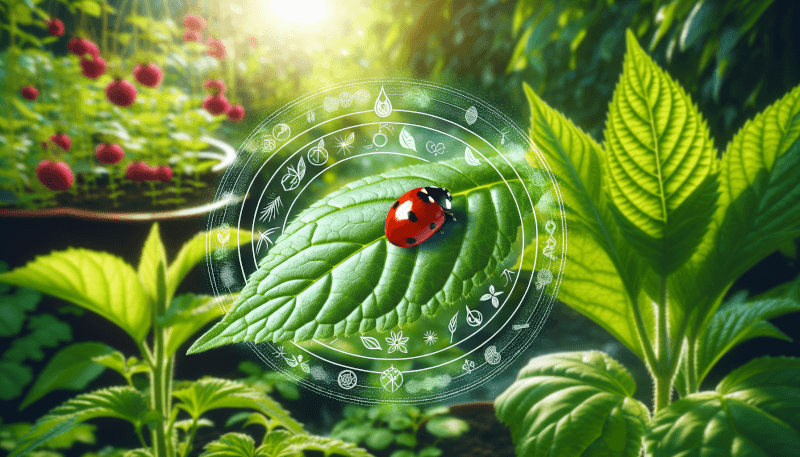Are pesky pests wreaking havoc on your garden? Don’t fret, because there are DIY garden pest control methods that actually work! In this article, you’ll discover simple yet effective ways to combat pests and protect your beloved plants. Say goodbye to those harmful chemicals and hello to natural alternatives that will keep your garden thriving and pest-free. Whether it’s dealing with slugs, snails, aphids, or other common garden enemies, we’ve got you covered with practical tips and techniques that you can easily implement. Get ready to reclaim your garden and enjoy the fruits of your labor with these tried and tested pest control methods.
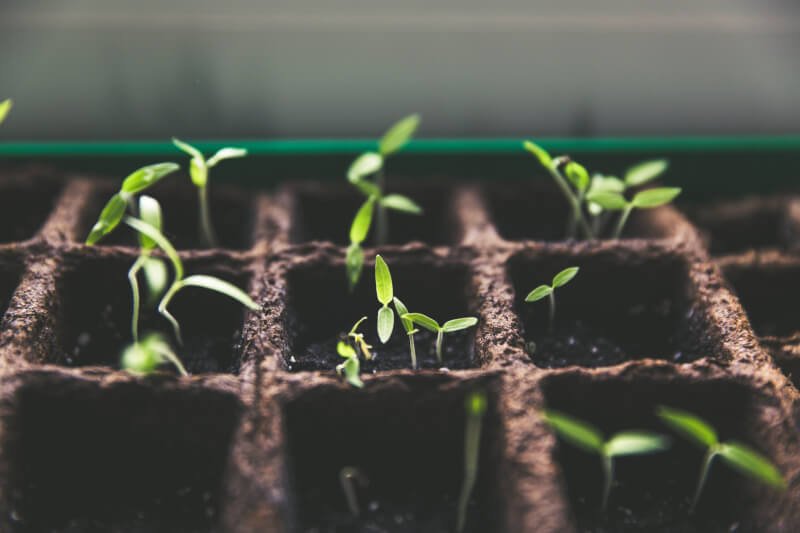
Soil Amendments
Companion Planting
Companion planting is a technique that involves growing certain plants together to deter pests and enhance their growth. By choosing plants with complementary characteristics, you can create a natural defense system for your garden. For example, planting marigolds near your tomatoes can help repel nematodes, while growing basil alongside your peppers can deter aphids. By strategically selecting your companion plants, you can reduce the need for chemical pesticides and encourage a healthier, pest-resistant garden.
Organic Mulch
Organic mulch is a fantastic tool for controlling garden pests while also improving soil health. By applying a layer of mulch around your plants, you can create a barrier that prevents weed growth and hinders the movement of pests. Mulch also helps retain moisture in the soil, which is especially beneficial during hot and dry periods. Additionally, as the organic mulch breaks down, it enriches the soil with nutrients, providing a healthier environment for your plants to thrive.
Natural Fertilizers
Using natural fertilizers is an excellent way to nourish your plants while deterring pests. Instead of relying on chemical fertilizers that can harm beneficial insects and disrupt the ecological balance, opt for organic alternatives such as compost, worm castings, or seaweed extracts. These natural fertilizers provide essential nutrients to your plants, promoting their overall health and resilience. By maintaining strong and healthy plants, you create an environment that is less susceptible to pest infestations.
Physical Barriers
Row Covers
Row covers are a valuable tool for protecting your crops from pests, particularly insects. These covers are made of lightweight fabric or mesh material that allows sunlight, air, and water to reach your plants while keeping unwanted visitors at bay. Row covers can effectively safeguard your plants from pests like beetles, caterpillars, and aphids and also act as a shield against adverse weather conditions. By using row covers, you can create a barrier that prevents pests from accessing your plants, significantly reducing the need for chemical pesticides.
Floating Row Covers
Similar to traditional row covers, floating row covers provide an extra layer of protection for your plants. These covers are made from lightweight materials and are supported by hoops or stakes to create a floating effect over your garden beds. Floating row covers are particularly useful for early-season planting and can help extend the growing season by providing a warmer environment for your crops. The covers also keep pests like cabbage worms, squash bugs, and flea beetles at bay, allowing your plants to flourish without interruption.
Garden Netting
Garden netting is an effective physical barrier that can help safeguard your garden from a wide range of pests. Installing garden netting over your plants creates a protective enclosure that prevents birds, rabbits, squirrels, and larger insects from accessing your crops. Netting is easy to install and can be secured in place with stakes or weights. This method is especially valuable for gardens with valuable or vulnerable crops, ensuring that your hard work is not damaged or destroyed by hungry pests.
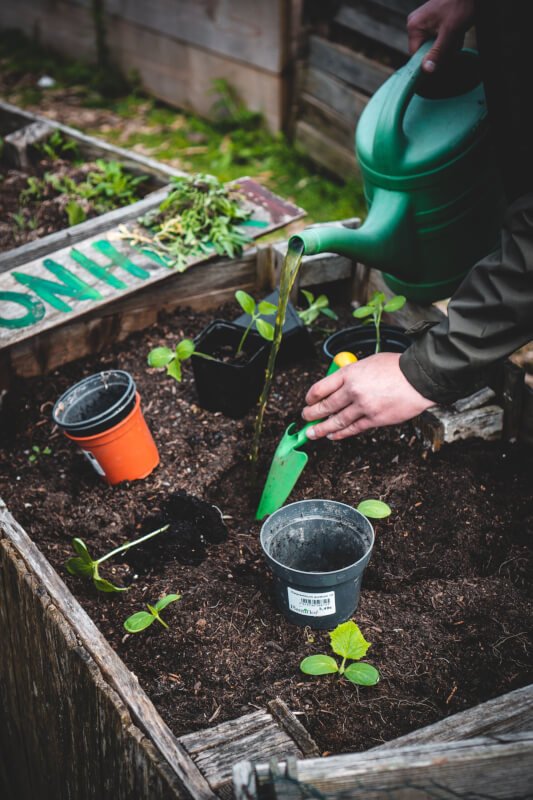
Homemade Pest Repellents
Garlic Spray
Garlic spray is a natural and potent deterrent for numerous garden pests, including aphids, mites, and beetles. To make garlic spray, blend a few whole garlic cloves with water, strain the mixture, and add a few drops of dish soap as an adhesive. Dilute the solution with water and spray it onto your plants, paying special attention to the leaves and stems. The strong odor of garlic repels pests, keeping them at bay without harming beneficial insects or your plants.
Hot Pepper Spray
Hot pepper spray is another effective homemade pest repellent that can help protect your garden. The capsaicin in hot peppers creates a spicy and unpleasant taste for pests such as insects and animals. To make hot pepper spray, blend a handful of hot peppers with water, strain the mixture, and add a few drops of dish soap. Spray the solution onto your plants, focusing on areas where pests are most active. Be cautious when handling and applying hot pepper spray, as it can cause irritation to the skin and eyes.
Neem Oil
Derived from the neem tree, neem oil is an organic pest control option that works against a wide range of garden pests. Neem oil contains compounds that disrupt the feeding and reproduction cycle of insects, making it an effective natural pesticide. To use neem oil, dilute it with water according to the manufacturer’s instructions and spray it onto affected plants. Neem oil is particularly useful for controlling pests like aphids, spider mites, and whiteflies. However, it is important to note that neem oil should be used with caution, as it can harm beneficial insects such as bees and ladybugs if not applied correctly.
Beneficial Insects and Wildlife
Attracting Beneficial Insects
One of the most sustainable ways to control pests in your garden is by attracting beneficial insects. Beneficial insects, such as ladybugs, lacewings, and ground beetles, naturally prey on garden pests, keeping their populations in check. To attract these helpful creatures, incorporate plants that provide nectar, pollen, and shelter into your garden. Flowers like coneflowers, daisies, and sunflowers are particularly attractive to beneficial insects. Additionally, avoiding the use of chemical pesticides ensures a safe habitat for these helpful creatures to thrive in.
Birdhouses and Birdbaths
Birds are voracious insect eaters and can play a significant role in pest control. By providing birdhouses and birdbaths in your garden, you create an inviting environment for birds to visit and make a home. The birds will then feast on insects, reducing pest populations naturally. Place birdhouses in strategic locations, ideally at different heights, to encourage a diverse range of bird species. Birdbaths are also essential, as birds require fresh water for drinking and bathing. Simple additions like these can attract not only beautiful bird species but also valuable pest predators to your garden.
Frogs, Toads, and Lizards
Amphibians and reptiles such as frogs, toads, and lizards are natural predators of garden pests like slugs, snails, and insects. To attract these helpful creatures to your garden, create suitable habitats with plenty of hiding places and water sources. Install small ponds, water features, or even shallow dishes with water to provide amphibians with a place to live and reproduce. Additionally, ensure that your garden has ample ground cover and shelters, such as rock piles or log piles, to attract lizards. By encouraging these natural predators to take up residence in your garden, you can enjoy the benefits of pest control without relying on harmful chemicals.

DIY Traps and Deterrents
Beer Trap for Slugs and Snails
Slugs and snails can be a nuisance in the garden, devouring leaves and damaging plants. A simple and effective way to control these pests is by setting up beer traps. Bury a small container, such as a yogurt cup or shallow dish, in the ground and fill it with beer. The scent of the beer will attract slugs and snails, and they will crawl into the container and drown. Empty the traps regularly and replenish the beer to continue attracting and eliminating these unwanted pests.
Sticky Traps for Flying Insects
Flying insects like whiteflies, aphids, and fruit flies can cause significant damage to your garden. You can create sticky traps to catch and control these pests. Cut bright yellow or blue cardboard or plastic into small shapes and coat them with a sticky substance like petroleum jelly or Tanglefoot. Hang the traps near affected plants or throughout your garden to attract flying insects. As the insects land on the traps, they will become stuck and unable to continue their destructive activities. Regularly check and replace the traps as needed.
Coffee Ground Barrier
Coffee grounds can serve as a natural barrier against slugs, snails, and other pests. These critters are repelled by the texture and acidity of coffee grounds, making them less likely to venture near your plants. Simply sprinkle used coffee grounds around the base of your plants or create a perimeter around your garden beds. Not only does this act as a physical barrier for pests, but the coffee grounds also act as a natural fertilizer, adding nutrients to the soil as they break down.
Natural Predators
Encouraging Birds
Birds are excellent natural predators and can help maintain a balanced ecosystem in your garden. To encourage birds to visit your garden, provide them with sources of food, water, and shelter. Hang bird feeders filled with seeds and nuts in various locations throughout your garden. Plant trees, shrubs, and flowers that produce berries or seeds, providing birds with a natural food source. Ensure there are also bird baths or shallow dishes with water available for drinking and bathing. By creating a welcoming environment, you can attract a variety of bird species that will help keep pest populations under control.
Attracting Bats
Bats are nocturnal creatures that are incredibly beneficial for garden pest control, particularly for insects like mosquitoes, moths, and beetles. To attract bats to your garden, install bat houses in areas with low light pollution, such as near trees or against the side of your house. These houses provide bats with a safe and comfortable place to roost and raise their young. Bats are excellent hunters and can eat large quantities of insects each night, reducing pest populations naturally. By providing a suitable habitat for bats, you can effectively control pests while enjoying the fascinating sight of these mammals in your garden.
Installing Beneficial Insect Habitats
By installing specific habitats, you can attract and support beneficial insects that prey on garden pests. For example, ladybugs and lacewings are beneficial insects that consume aphids and other soft-bodied insects. You can purchase or create simple houses or shelters that provide a suitable habitat for these insects, such as small wooden boxes or bundles of sticks. Position these habitats in areas where pests are most problematic, such as near plants that are prone to aphid infestations. By encouraging beneficial insects to take up residence in your garden, you can naturally control pest populations and promote a healthier ecosystem.
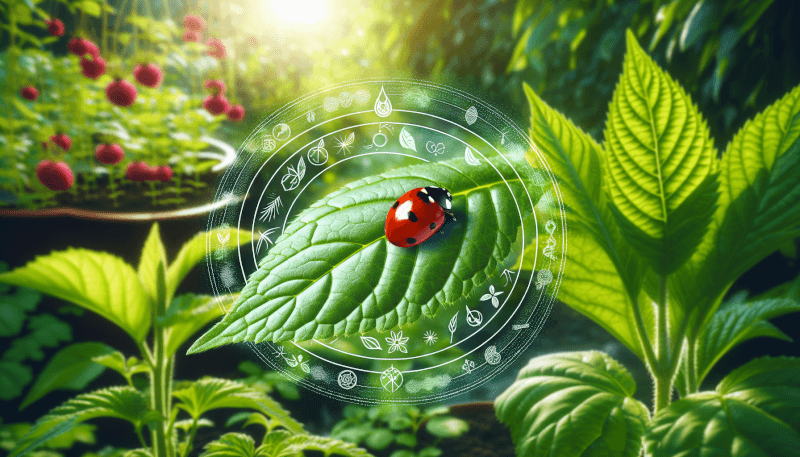
Organic Pesticides
Insecticidal Soap
Insecticidal soap is a safe and effective organic pesticide that can control a wide range of pests, including aphids, mealybugs, and whiteflies. This soap works by suffocating and dehydrating the insects when sprayed onto them. To make your own insecticidal soap, mix a tablespoon of mild liquid soap, such as castile soap, with a quart of water. Transfer the solution to a spray bottle and evenly coat the affected plants, ensuring all sides of the leaves are covered. Repeat as necessary to maintain control over pests without harming beneficial insects or plants.
Horticultural Oil
Horticultural oil is another organic pesticide that helps control pests like scale insects, mites, and adelgids. This oil suffocates and disrupts the pest’s life cycle, effectively preventing further damage. To use horticultural oil, dilute it according to the manufacturer’s instructions and apply it to the affected plants using a spray bottle or garden sprayer. This method is particularly effective during the dormant season to target overwintering pests. Horticultural oil is safe to use on most ornamental plants and fruit trees, but it is important to read and follow the instructions carefully.
Homemade Garlic, Onion, and Pepper Spray
A homemade garlic, onion, and pepper spray is a powerful organic pesticide that can help control a wide range of pests. To make this spray, combine a few cloves of garlic, a small onion, and a hot pepper in a blender. Add water and blend until you have a smooth mixture. Strain the mixture to remove any solids, then add a few drops of dish soap to help the solution adhere to the plants. Transfer the mixture to a spray bottle and liberally spray the affected plants, ensuring all surfaces are covered. This spray is particularly effective against insects like aphids, caterpillars, and beetles.
Crop Rotation
Understanding Crop Rotation
Crop rotation is a systematic approach to growing different plants in different areas of your garden each year. By rotating crops, you can disrupt the life cycles of pests and diseases that have specific host plants. This practice helps prevent the buildup of pests and pathogens in the soil, reducing the likelihood of infestations. The key to successful crop rotation is understanding the specific needs and vulnerabilities of each plant and planning a rotation schedule that maximizes benefits and minimizes risks.
Planning Crop Rotation
To effectively implement crop rotation, you need to plan your garden layout and rotation schedule carefully. Start by dividing your garden into sections or beds, and assign each area to a specific plant family or category. Rotate plants within these areas, ensuring that plants from the same family do not occupy the same space for consecutive growing seasons. Consider factors such as nutrient requirements, pest vulnerabilities, and root crops when planning your rotation schedule. By diversifying what you plant and where you plant it, you can disrupt pest populations and promote soil health.
Benefits of Crop Rotation
Crop rotation offers numerous benefits for your garden. By rotating crops, you can reduce the incidence of pests and diseases that target particular plant families. This reduces the need for chemical pesticides and fosters a healthier, more sustainable gardening environment. Crop rotation also helps balance nutrient uptake, as different plants have varying nutrient requirements. Additionally, by rotating legumes such as beans or peas, you can fix nitrogen levels in the soil, reducing the need for synthetic fertilizers. A well-planned crop rotation system can promote the long-term health and productivity of your garden while minimizing the occurrence of pest-related issues.
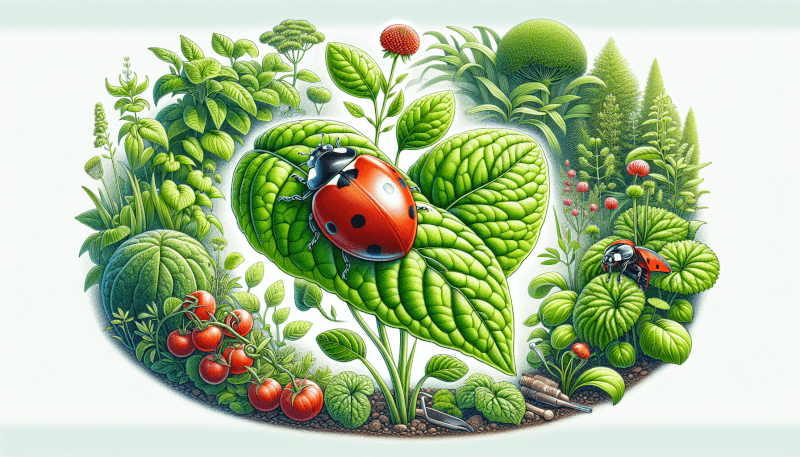
Barriers and Fences
Deer-Proof Fencing
Deer can cause significant damage to garden plants, especially in areas where their population is high. To protect your garden from deer, install a deer-proof fence around the perimeter. The fence should be at least 8 feet tall to prevent deer from leaping over it. Use sturdy materials such as metal or high-tensile wire to construct the fence, and ensure that it is properly secured to the ground to prevent deer from squeezing underneath. Regularly inspect the fence for any damage or gaps and make repairs as needed to maintain its effectiveness.
Rabbit-Proof Fencing
Rabbits are notorious garden pests that can quickly damage or destroy plants. To keep rabbits out of your garden, install rabbit-proof fencing around the perimeter. The fence should be buried at least 6 inches deep to prevent rabbits from burrowing underneath. The height of the fence should be at least 2 feet to prevent rabbits from jumping over it. Use sturdy materials such as chicken wire or hardware cloth with small mesh openings to prevent rabbits from squeezing through. Regularly inspect the fence for any damage or gaps and make repairs as needed to keep rabbits at bay.
Squirrel Deterrents
Squirrels can be a nuisance in the garden, digging up bulbs, stealing fruits and vegetables, and damaging plants. To deter squirrels, consider using a combination of physical barriers and deterrents. Install metal flashing or squirrel baffles around the trunks of trees to prevent squirrels from climbing up. Place squirrel-proof cages or covers over vulnerable plants or garden beds to protect them from squirrel foraging. You can also use commercial squirrel repellents or homemade deterrents such as spicy pepper sprays or predator urine. By implementing multiple strategies, you can minimize squirrel damage in your garden and protect your hard-earned harvest.
Proper Hygiene and Maintenance
Regular Weeding and Pruning
Regular weeding and pruning are essential maintenance tasks that help control pests in your garden. Weeds can provide hiding places and host plants for pests, so removing them regularly eliminates potential habitats. Pruning helps improve air circulation and sunlight exposure, reducing the risk of fungal diseases. It also removes infected or damaged plant parts that can attract pests. By staying on top of weeding and pruning, you create a healthier garden environment that is less attractive to pests, promoting overall plant health and reducing the need for chemical interventions.
Removing Diseased Plants
Diseased plants can act as a breeding ground for pests and pathogens, spreading diseases throughout your garden. To prevent the spread of diseases, promptly remove any plants that show signs of infection or severe damage. It is crucial to properly dispose of the diseased plant material, either by burning it or sealing it in a plastic bag and disposing of it in the trash. Avoid composting diseased plant material, as this can perpetuate the problem. By promptly removing and properly disposing of diseased plants, you can prevent the spread of pests and diseases, safeguarding the health of your garden.
Cleaning Garden Tools
Garden tools can inadvertently spread pests and diseases from one plant to another if not properly cleaned and sanitized. After each use, take the time to clean your garden tools thoroughly. Use a wire brush or steel wool to remove any dirt or debris, then wash the tools with warm, soapy water. Rinse them thoroughly and dry them completely before storing them. Periodically disinfect your tools by soaking them in a solution of equal parts water and rubbing alcohol or hydrogen peroxide. Keeping your garden tools clean and sanitized helps prevent cross-contamination and reduces the risk of introducing pests or diseases into your garden.
In conclusion, there are numerous DIY garden pest control methods that can effectively minimize pest problems in a friendly and sustainable way. By implementing practices such as companion planting, using physical barriers, creating homemade pest repellents, attracting beneficial insects and wildlife, utilizing DIY traps and deterrents, encouraging natural predators, employing organic pesticides, practicing crop rotation, installing barriers and fences, and maintaining proper hygiene, you can create a garden that is less susceptible to pest infestations. Remember, a healthy garden is a diverse and balanced ecosystem that thrives with minimal intervention.

